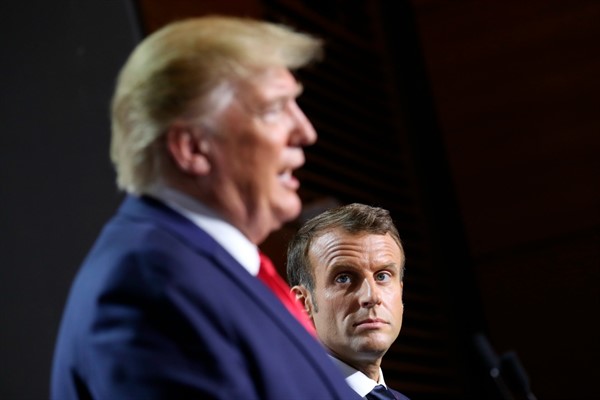President Donald Trump likes tariffs, regardless of their target. While China gets most of the attention, he hasn’t hesitated to attack America’s friends and allies as well. His Democratic rival for the presidency, former Vice President Joe Biden, has his own concerns about Chinese trade practices and has been vague about whether he would roll back Trump’s tariffs on China, so trade tensions between Washington and Beijing are likely to remain high no matter who wins in November. The situation is different for European policymakers, since the election could determine whether an escalation in trade tensions is coming, or a truce.
Two announcements last week have reignited trans-Atlantic trade fears that had been tamped down earlier this year. Last Monday, the Organization for Economic Cooperation and Development conceded that there will be no multilateral agreement before the end of the year on how to collect taxes from large digital services companies—think Amazon, Apple, Facebook and Google. If European governments move ahead with plans to impose a tax unilaterally, Trump has said he would impose retaliatory tariffs on their exports. Experts at the OECD estimated that a global trade war triggered by the imposition of digital taxes could knock 1 percent off of global GDP.
The day after the release of the OECD’s analysis, a World Trade Organization arbitrator ruled that the European Union could impose tariffs later this month on $4 billion of American exports in the latest phase of a long-running dispute over public support for aerospace giant Boeing, America’s largest exporter. That would follow the Trump administration’s imposition of tariffs last year, also authorized by the WTO, on $7.5 billion in imports of European planes, wine and cheese in retaliation for EU subsidies of Airbus.

